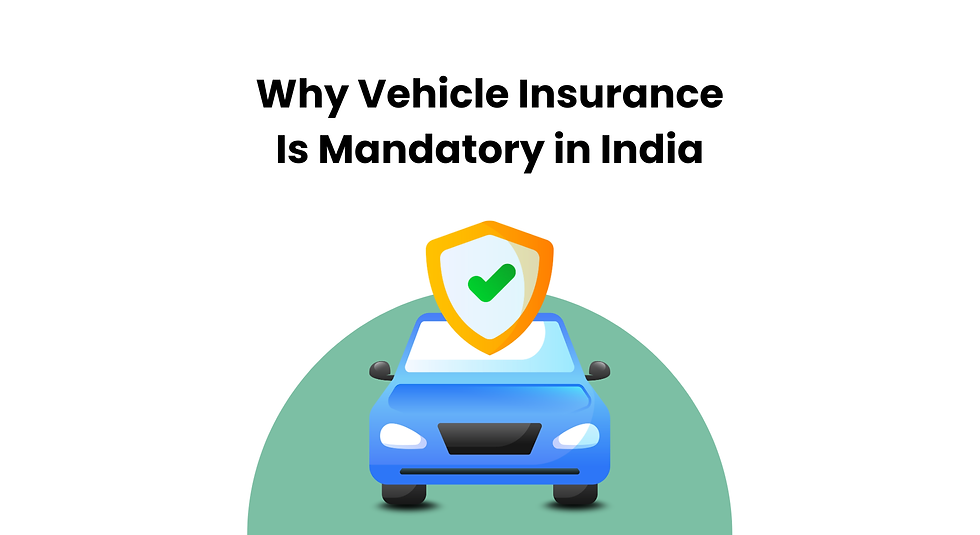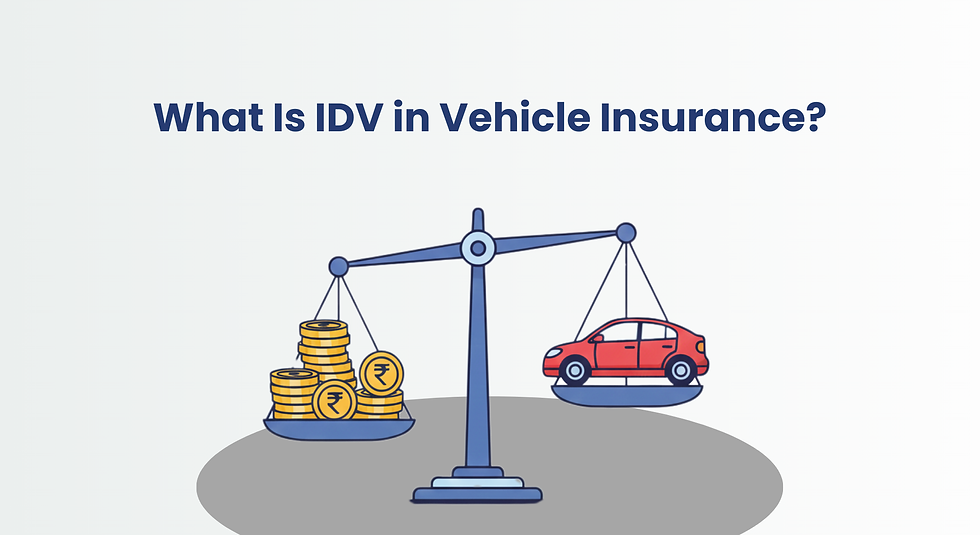Ride Sharing Insurance in India | Delivery & Car Insurance Impact
- Rohit Lokhande
- Sep 29
- 2 min read
Updated: Nov 25
Table of content
What Is Ride Sharing Insurance?
Why Standard Car Insurance Doesn’t Cover Ride Sharing
Impact of Ride Sharing Use on Car Insurance in India
Specialized Insurance Options for Ride Sharing Drivers
Best Practices for Policyholders Using Cars for Commercial Purposes
FAQs

The rise of Ola, Uber, Rapido, Zomato, and Swiggy has transformed how vehicles are used in India. Cars and two-wheelers are no longer just personal assets—they’re also business tools. This shift makes ride sharing insurance a necessity. Understanding the impact of ride sharing use on car insurance in India is critical for drivers who want valid coverage, avoid claim rejections, and manage higher risk exposure.
What Is Ride Sharing Insurance?
Ride sharing insurance is a specialized form of coverage designed for vehicles used commercially in passenger transport or delivery services. Unlike standard private car insurance, it includes additional protections for high-risk usage, frequent driving, and passenger liability.
Why Standard Car Insurance Doesn’t Cover Ride Sharing
Private use only: Normal car insurance policies are meant for personal driving.
Exclusion clauses: Using a private car for commercial purposes violates policy terms.
Claim rejections: Accidents during ride sharing or delivery services may not be compensated.
Higher liability risks: Carrying paying passengers or goods requires broader coverage.
Impact of Ride Sharing Use on Car Insurance in India
The impact of ride sharing use on car insurance in India includes:
Premium hikes: Commercial vehicles face higher premiums due to increased exposure.
Reclassification of vehicle: A private car shifts into the “commercial” category when used for ride sharing.
Claim scrutiny: Insurers carefully check usage at the time of an accident.
Additional requirements: Permits, fitness certificates, and commercial driving licenses are mandatory.
Specialized Insurance Options for Ride Sharing Drivers
Commercial Car Insurance – Designed for taxis, ride-hailing, and deliveries.
Passenger Liability Cover – Protects against claims from passengers in case of accidents.
Loss of Income Add-On – Covers downtime if the vehicle is under repair.
Zero Depreciation & Engine Protect – Useful for high-mileage vehicles prone to damage.
Best Practices for Policyholders Using Cars for Commercial Purposes
Disclose commercial usage to your insurer honestly.
Opt for cashless repair networks for quicker claim settlements.
Renew permits and fitness certificates on time.
Compare multiple insurer quotes for the best coverage.
Keep ride-sharing or delivery platform documents handy when filing claims.
FAQ's
1. What is ride sharing insurance?
It’s specialized coverage for vehicles used in ride-hailing or delivery services.
2. Can I use private car insurance for ride sharing insurance?
No. Doing so violates the policy, and claims may be denied.
3. How does ride sharing insurance impact car insurance in India?
It increases premiums, requires commercial classification, and involves stricter rules.
4. Do delivery drivers need different insurance?
Yes, they must have commercial vehicle insurance to be legally covered.
5. Is ride sharing insurance more expensive?
Yes, but it ensures valid protection in case of accidents or liabilities.
With the gig economy booming, ride sharing insurance is no longer optional. The impact of ride sharing use on car insurance in India includes higher premiums, stricter requirements, and a shift from private to commercial policies. By disclosing usage honestly and choosing the right coverage, drivers can protect themselves, their passengers, and their earnings.




Comments